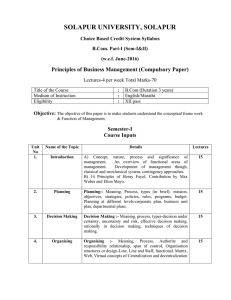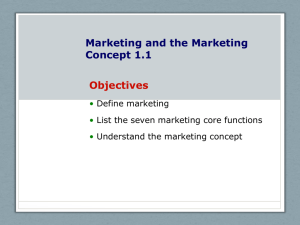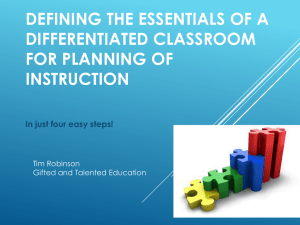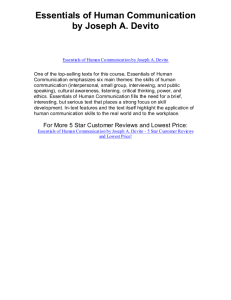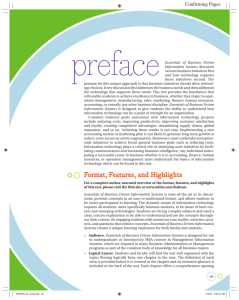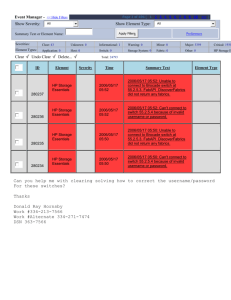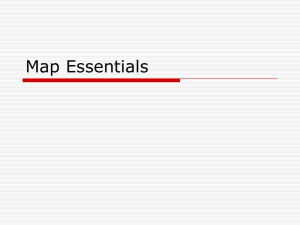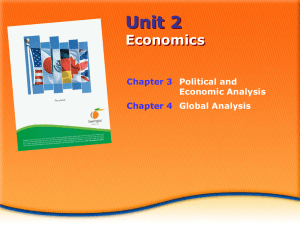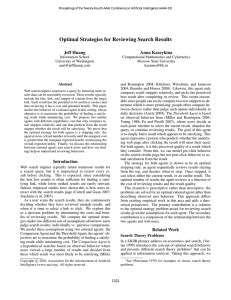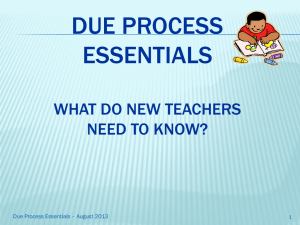Essentials of People Management
advertisement
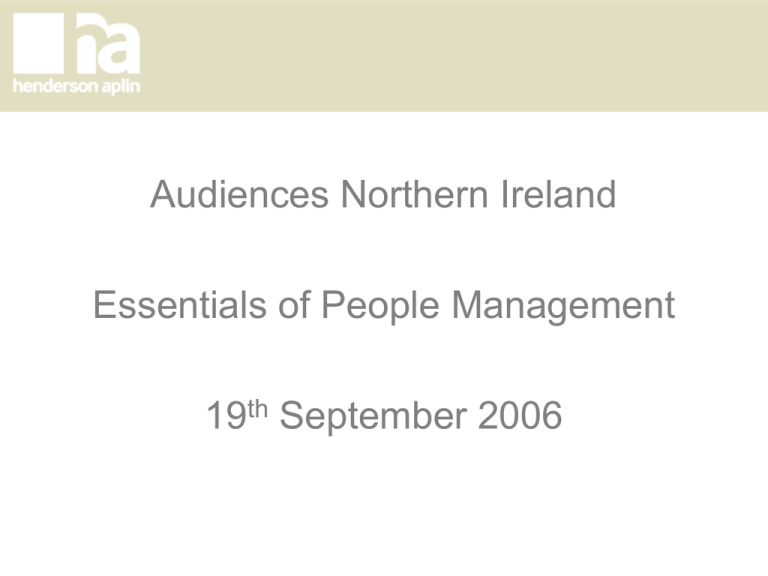
Audiences Northern Ireland Essentials of People Management 19th September 2006 10.30am: The essentials of management 11.45am: Coffee 12 noon: What does it mean to be a manager? 1.15pm: Lunch 1.45pm: Communication skills to get results 3.00pm: Tea 3.15pm: Goals and feedback to boost performance 4.30pm: End Session 1 The essentials of management • • • • • • • • • • Planning Organising Co-ordinating Controlling Motivating Delegating Coaching Training Problem solving Disciplining Management is the efficient, effective and economic use of resources to achieve results with and through the efforts of other people. Planning Reviewing Organising Communicating Controlling Directing Session 2 What does it mean to be a manager? Leading people Managing processes Doing things Performance Improvement Leadership skills Management skills Performance Satisfying Relationships ‘All interaction between you and your staff achieves something. The question is, does it achieve what you want it to?’ Satisfying Relationships: role play Listen to two versions of the same conversation between a box office manager and a team member. The team member is seeking the manager’s advice on a customer issue. Think about which version has the post positive impact in terms of the team member’s: • • • Level of motivation Learning and development Relationship with their manager Enhanced Credibility • Your technical ability • Your position in the hierarchy • How your staff feel about you A substantial part of being a manager lies in connecting the emotions of your staff to the processes and results the organisation needs to achieve. Session 3 Communication skills to get results Communication is the transmission and reception of meaning. Who is responsible for the effectiveness of the communication? Triple ‘A’ Communicators: A Ask questions A Adopt positive body language A Actively listen Questioning Techniques • • • • • • • Open questions Probing questions Hypothetical questions Closed questions Multiple questions Leading questions Trick questions Exercise: questioning techniques In groups of three, have one turn each at being the manager, the team member and the observer. Each use a different scenario. The observer is responsible for time-keeping: 3 minutes maximum for the role-play; 2 minutes for feedback. Words – 7% Body Language Tone Words Body language – 55% Tone – 38% SOLER power S smile, sit up and face the individual O open posture L lean forward E eye contact R relax Key Responding Techniques To get people to talk to you, you have to show them you are really listening to what they are saying. • • • • • • • Paraphrasing Reflecting Clarifying Echoing Silence Summarising Focus Session 4 Goals and feedback to boost performance What do you want from me (as your manager) that will help you perform your job effectively? • Clarify my job and the results I am expected to achieve • Give me the resources and opportunity to perform • Let me know how I am getting on • Give me guidance and training when I need it • Reward me according to my contribution Feedback ‘The carrying back of some of the effects of a process to its source or to a preceding stage so as to strengthen or modify it.’ Bandura’s research with 80 cyclists 60% % increase in performance 25% 25% 20% Goals only Feedback Goals & Control only group feedback Planning the next steps Having an experience Concluding from the experience Reviewing the experience Types of feedback: • • • • • • • • • Positive Facilitative Specific Descriptive Actionable Prioritised Constructive Well timed Discussed
